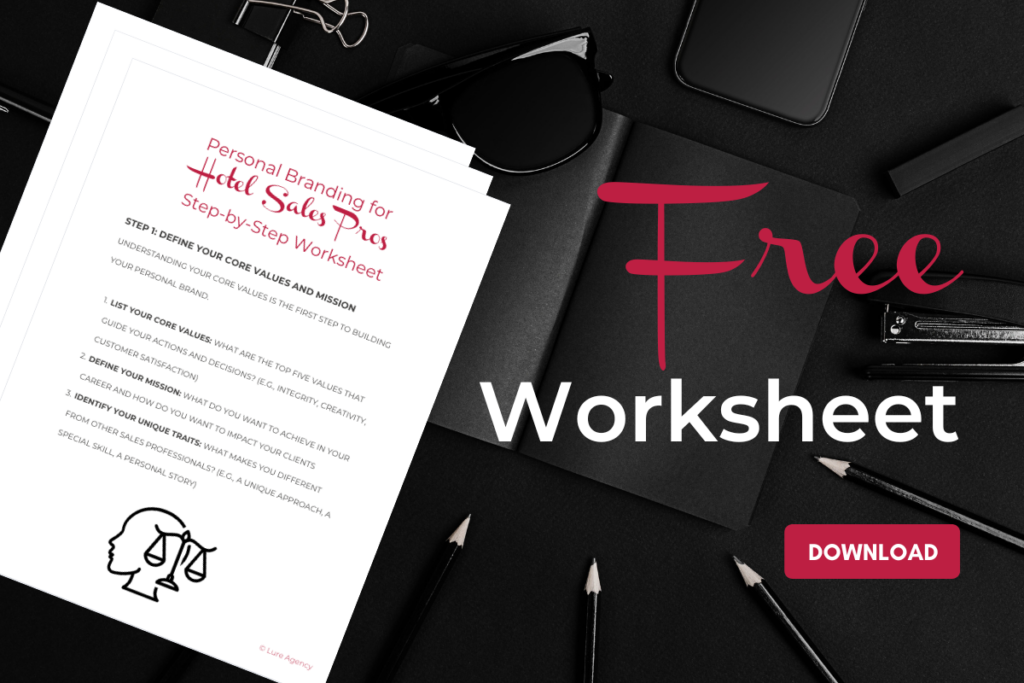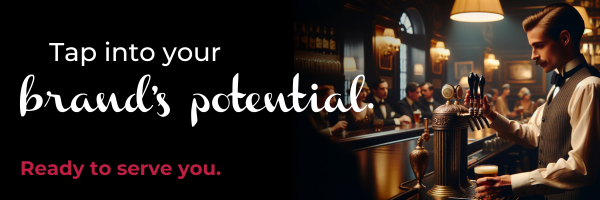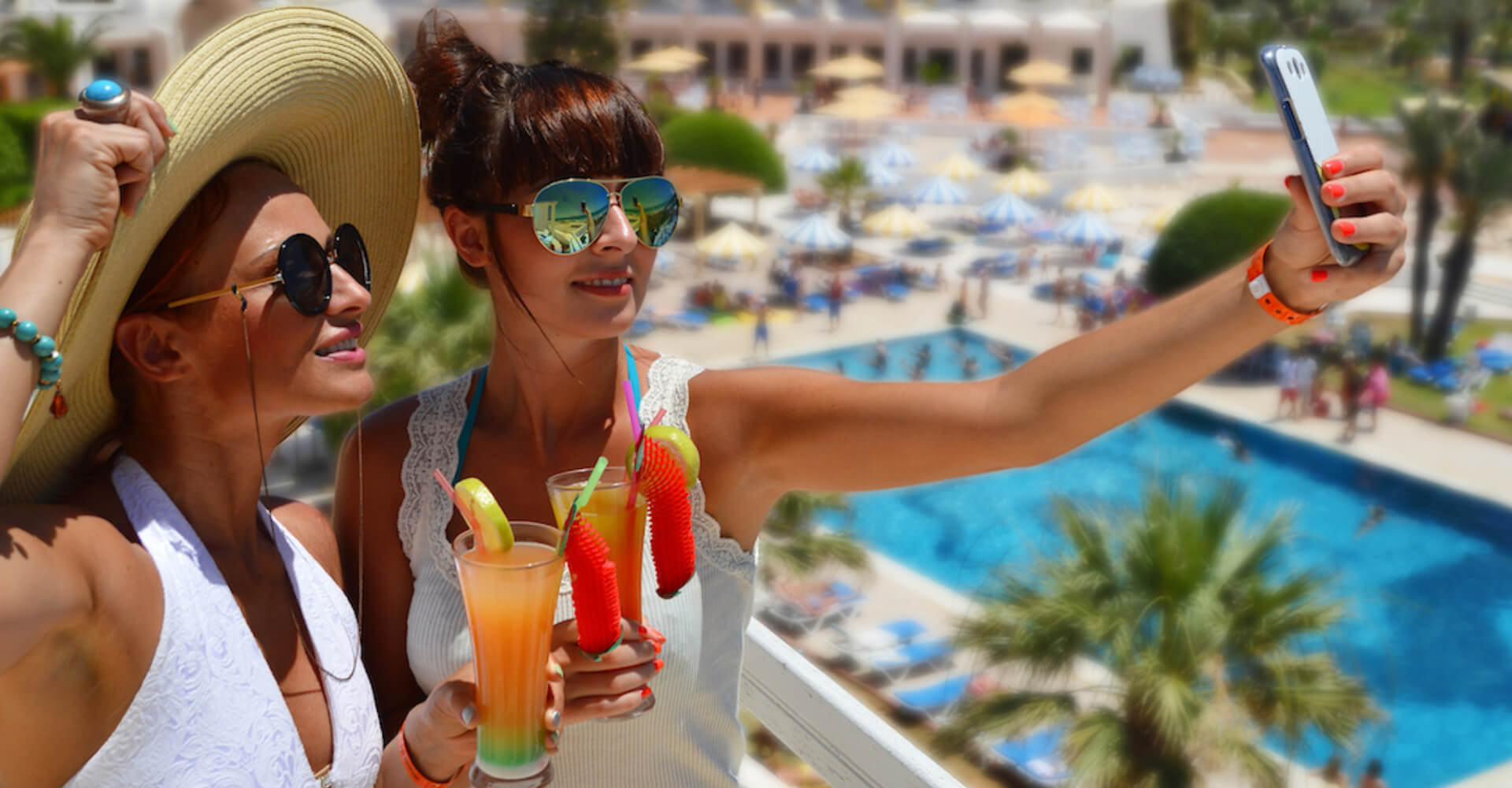
Why are so many hotel sales professionals stuck in the rut of rates, dates, and spaces? It's time to save your pipeline.
We have a secret for you. The process of hotel sales is undergoing a dramatic transformation. Buyers are more empowered than ever, competition is more fierce than ever, and technology is shifting the landscape and mindset.
If you want to level the playing field, it may be time to elevate your game by building your personal brand and attracting long-term relationships. Be empowered to be your own pipeline hero!
Personal branding is the key to attracting and building trust with like-minded buyers, but it’s often misunderstood.
Cory Falter recently invited Shelley Brown, keynote speaker, and cultural cohesion champion, to the InnSync Show to explore how hotel sales professionals can rise above the competition, seal deals today, and build powerful relationships for tomorrow.
Let’s dive in.
In this post:
- Understanding the Impact of Personal Branding
- The Problem: Rates, Dates, and Spaces Mentality
- The Misunderstanding of Personal Branding
- 5 Tips to Build Your Personal Brand
- No Opt-In Step-by-Step Worksheet
Understanding the Impact of Personal Branding
The Problem: Rates, Dates, and Spaces Mentality
Many hotel salespeople default to a transactional approach, focusing solely on rates, dates, and spaces.
This method makes it challenging for prospects to differentiate one hotel from another. Prospective clients are left to make decisions based largely on price, leading to commoditization.
As a result, hotels often find themselves in a race to the bottom, where the lowest price wins, but the true value of the hotel and the team remains unnoticed.
As Shelley highlights, “People buy from people they like. That’s first and foremost.”
Personal connections foster trust and loyalty, turning one-time clients into repeat customers.
By focusing solely on transactions, hotel salespeople miss the chance to connect on a human level, which is crucial for long-term success.
RELATED: Beyond the Logo: The Ultimate Guide to Hospitality B2B Brand Strategy
The Misunderstanding of Personal Branding
The term “branding” often carries misconceptions, especially in the hospitality industry.
Many hotel sales professionals see branding as something reserved for large corporations with big budgets, rather than a crucial element of their own sales strategy.
This misunderstanding can be broken down into several key areas:
- Perception of Branding as a Luxury: Branding is frequently perceived as an unnecessary luxury, associated with high costs and complex strategies. Many believe it involves hiring expensive marketing agencies to create elaborate branding books that ultimately gather dust on a shelf. This view overlooks the essence of personal branding, which isn’t about extravagant expenditures but about authenticity and connection.
- Misconception of Personal Branding as Self-Promotion: Another common misconception is that personal branding equates to self-promotion or boasting. Sales professionals might fear that by focusing on their personal brand, they will come across as self-centered or inauthentic. However, personal branding is not about inflating one’s ego; it’s about presenting one’s true self in a way that resonates with potential clients.
- Overemphasis on Social Media Presence: While social media is a powerful tool for personal branding, it’s not the whole picture. Some salespeople might think that personal branding solely involves posting regularly on platforms like LinkedIn or Instagram. While online presence is important, personal branding encompasses much more, including how one interacts with clients, the values one upholds, and the consistency of one’s message across all channels.
- Fear of Vulnerability and Authenticity: Building a personal brand requires vulnerability and a willingness to share personal stories and values. This can be intimidating, as it opens up the possibility of judgment or rejection. Shelley Brown notes, “Social media and having your brand and being really knowing what your brand and what you stand for as a human being…everything I do is tied to my brand.” This emphasizes the importance of showing up authentically and consistently, which can be challenging but is ultimately rewarding.
- Lack of Immediate Tangible Results: The benefits of personal branding are often long-term and might not yield immediate, tangible results. In a high-pressure sales environment where quick wins are highly valued, the slow and steady nature of building a personal brand might seem less appealing. However, the trust and loyalty built through authentic personal branding can lead to more sustainable and significant success over time.
- Unclear Understanding of Personal Branding Benefits: Many hotel sales professionals might not fully understand the benefits of personal branding. They may see it as separate from their sales objectives, not realizing that a strong personal brand can directly impact their success. A well-crafted personal brand can attract like-minded clients, build stronger relationships, and ultimately drive sales. Shelley underscores this by linking her personal brand to her success: “Everything I do is tied to my brand.”
Personal branding is about defining and consistently presenting who you are and what you stand for.
YOU MAY ALSO ENJOY: Beyond the Logo: The Ultimate Guide to Hospitality B2B Brand Strategy
5 Tips to Build Your Personal Brand
It’s never too early to start building your personal brand on LinkedIn.
Cory says, “There is tremendous value in a LinkedIn connection over just another email address, because an email address is probably going to be bad in three months.”
Here are a few tips to get started.
1. Know Your Values and Be Authentic
Your personal brand starts with understanding your values.
What do you care about? What makes you unique?
Shelley suggests, “Be really consistent and be really clear about what it is that you want to bring to other people.”
Sharing your values and interests attracts like-minded clients, making connections more meaningful and reducing the focus on price.

2. Leverage Social Media Wisely
Social media isn’t just for posting rates and availability. Use it to showcase your personality and values.
Shelley recalls how her unique voicemail messages, where she sang popular songs with custom lyrics, helped her stand out and build a following.
Similarly, use LinkedIn to share personal tidbits and engage authentically.
As Cory points out, “Bring some of that out. Please don’t write your about section in third person; bring those elements and be real.”
3. Showcase Your Unique Traits
Don’t be afraid to highlight what makes you different.
Whether it’s a quirky hobby, a unique perspective, or a personal story, these elements make you memorable and relatable.
Shelley says, “My brand is weird, which means a stranger or an extraordinary character, odd or fantastic, and we're all weird, just different weird. And that’s what makes us interesting.”
Cory adds, “I made an incredibly valuable connection because I included that I have twin daughters in my profile. It really works!”
4. Be Patient and Persistent
Building a personal brand takes time and consistency.
Shelley advises, “There is the element of patience because magic doesn’t happen overnight.”
Cory adds, “Don’t forget that when making connections, you should always include a personal note. Sure, it can be time-consuming, but absolutely worth it.”
Regularly share content that aligns with your values and engage with your audience. Whether it’s through comments, personalized messages, or creative posts, keep showing up authentically.
5. Engage Beyond Transactions
Authentic engagement goes beyond sales pitches.
Comment on others’ posts, share your thoughts, and connect on a personal level.
Shelley says, “Some days all I want to do is just make people feel good and engage with their content.” This approach not only builds relationships but also establishes you as a genuine and approachable professional.
In hotel sales, personal branding is your secret weapon.
It’s about more than just making a sale; it’s about building lasting relationships based on authenticity and shared values.
Shelley adds, “My brand is my values. My brand is the things that really matter to me.”
By embracing and showcasing your unique self, you can stand out in a crowded marketplace and become the go-to choice for clients.




